Puppet and You (偶與你之間) is a one-day exhibition of over 100 Taiwanese glove puppets from the collection of Chang Yi Fang Puppet & Pattern Creations (彰藝坊偶相與花樣工作室). The founder of the studio, Chen Yi-hsih (陳羿錫), has extensive knowledge of the puppet-making craft, owing to his father and grandfather who both made a living with their family-run puppet theater troupe. While the origins of Chinese puppetry can be traced to Chuanzhou, China, the art was brought to Taiwan by Chinese immigrants during the Qing Dynasty and has flourished with distinct local styles ever since. Chen hails from Changhua, home of Taiwanese glove puppetry. He moved to Taipei in the 1990s to set up Taiwan’s first puppetry specialty shop. Over the years the shop has created numerous wood-carved dolls as well as developed a fiberglass version more suitable for children. Collectible puppets differ from those used for performances, Chen says. Their family collection includes characters of all kinds, including Chung Kwei (鍾馗), Guan Yu (關羽) and the Monkey King, Su Wu Kong (孫悟空).
■ Chang Yi Fang Puppet & Pattern Creations (彰藝坊偶相與花樣工作室) 27, Ln 47, Yongkang St, Taipei City (台北市永康街47巷27號), tel: (02) 3393 7330. Contact studio for opening hours
■ Sunday from 1pm to 5pm
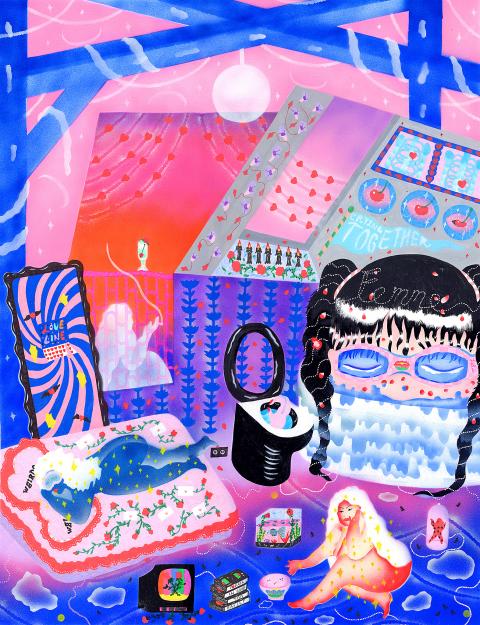
Photo Courtesy of the artist
Veteran Korean painter Park Seo-bo is known for his iconic painting series Ecriture, in which he pursues a reductive approach to action painting. His work combines the influences of Western abstract painting with Korean brush painting, seeking a balanced art practice that involves meditative action and creative experimentation. The series first began in the 1960s and has evolved through different phases of explorations without losing focus of his central belief in emptiness and dualist thinking. In the 1970s, Park discussed his intentions: “I painted nothing, my work had no form, no emphasis and no ins-and-outs, except for the pure vibration coming out of not doing anything — an action through non-action.” His debut solo exhibition in Taiwan, Pursuit of Inner Self, will open on Saturday at Taipei’s Art Issue Projects. The show includes old and new works from Ecriture, including a new body of paintings inspired by the red maple trees of Mount Bandai in Japan’s Fukushima, where he had previously sojourned.
■ Art Issue Projects (藝術計劃) 32, Ln 407, Tiding Blvd Sec 2, Taipei City (台北市堤頂大道二段407巷32號), tel: (02) 2659 7737. Open Tuesdays to Sundays from 11am to 7:30pm
■ Until April 8
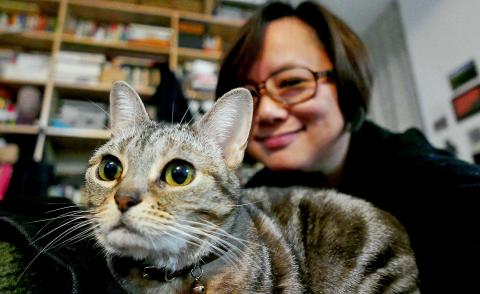
Photo Courtesy of Taiwan International Cat Film Festival
Tapetum Lucidum is the third edition of Taiwan International Cat Film Festival curated by Liu Yong-hao (劉永皓) and Li Ming-yu (李明宇). The title refers to a part of the eye that greatly enhances night vision in some animals, such as cats. Drawing from this theme of alternative vision, the curators propose questions concerning perception and truth as reflected in the practice of art, film and science. The festival’s three-day film program features works by 12 local and international artists, many of them cat aficionados. Headlining the festival is Japanese artist Obitani Yuri’s Your Intruder, a highly stylistic film that chronicles the domestic life of a Japanese man disrupted by the intrusion of a cat. The film is experimental in form, combining long shots, camera movements and vocal performances. Jeff Zorrilla’s Nica’s Family Grows, documents the process of building a pet cat family for his cat Nica. Huang Hsiao-yen’s (黃小燕) Niu Niu Hsia Hsia Chiao Chiao is about her life living with three cats and their intimate emotional bond as one household. The festival offers an aesthetic take on our domestic relationships with animals.
■ TheCube Space (立方空間) 2F, 13, Roosevelt Rd Sec 4, Taipei City (台北市羅斯福路四段136巷1弄13號2樓), tel: (02) 2468 9418. Open Wednesdays to Sundays from 2pm to 8pm
■ Until Sunday
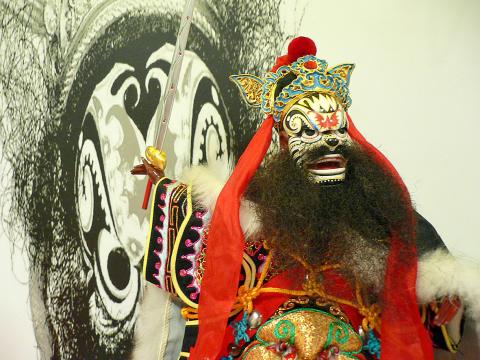
Photo Courtesy of Chang Yi Fang Puppet and Pattern Creations
Rubanee (李雅雯) is a young Taiwanese artist who creates dreamlike illustrations that question what it means to be Asian and female. She perceives her art practice as process of self discovery, in which she develops her own interpretation of the female gaze. Working with acrylic and pen-on-paper, Rubanee’s works are vibrantly colorful, picturesque narratives; the meticulous detail she often puts in her work suggests a joyful pleasure in the process of describing her inner world. NOW Space is presently hosting a solo exhibition of Rubanee’s recent work, Kirakira. X’MAS break up is a diaristic account of her experience falling out of love. The drawing features voluptuous women, as portraits of the artist’s self, who play out the artist’s painful memories of amnesia, epic film watching and nostalgia. Wall of Fem is a series of eight female portraits that demonstrate the artist’s idea of female strength and self-confidence. One portrait in particular features a woman figure with sensual curves, posed in the manner of Botticeli’s Venus as she modestly covers her nakedness with folding arms. According to the artist, through her art she tries to give a voice to the Asian female perspective.
■ NOW Space (鬧空間) 3F, 58, Yanping S Rd, Taipei City (台北市延平南路58號3F), tel: 0987-444- 957. Open Wednesdays to Sundays from 1pm to 8:30pm
■ Until Sunday
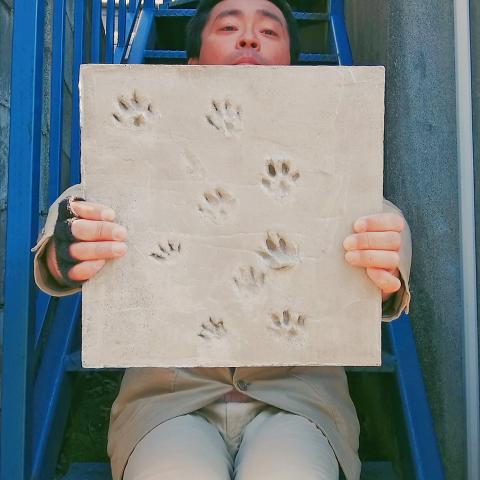
Photo Courtesy of Taiwan International Cat Film Festival
“ I just phoned The Grand Macondon Hotel. ” She said. is an art exhibition that accompanies the release of art journal Waterfall’s latest issue, A Hundred Years of Solitude. The exhibition extends from one of the chapters in the journal that describes a place where the past can be resurrected in the present and where visitors come to seek temporary escape from their realities. “At one point, history and real life would tangle with stories and fantasies... When we look at it in other angles or how we interpret it alternatively, we’ve forged a new-born story/history,” the journal writes in a press release. The exhibition provides impressions of this fictional place through a display of artworks created by artists featured in the journal. Lin Yi-chi’s (林羿綺) Requiem for a Dream of Father is a video that drifts between memories and dreams. Through methods that involve brain imaging, hypnosis and ritualistic re-enactments, the artist traces her childhood memories of her father through a fragmented narration. Yun-yu Ayo Shih’s (施昀佑) A Manual, How to Bribe a Cop in Columbia is a collaborative study of Columbia’s culture of bribery based on the artist’s personal experiences as well as 600 online surveys and 350 interviews. Written in the manner of a technical guide, the book provides dialogue tactics, case studies and an overview of body gestures and verbal language used in the act of bribery. A talk is scheduled for the last day of the exhibition, featuring artist and curator Shauba Chang (章芷珩) and novelist Chen Yu-chin (陳又津).
■ Pon Ding (朋丁) 3F, Ln 53, Zhongshan N Rd Sec 1, Taipei City (台北市中山區中山北路一段53巷6號), tel: (02) 2537-7281. Open daily from 11am to 8pm
■ Until March 4
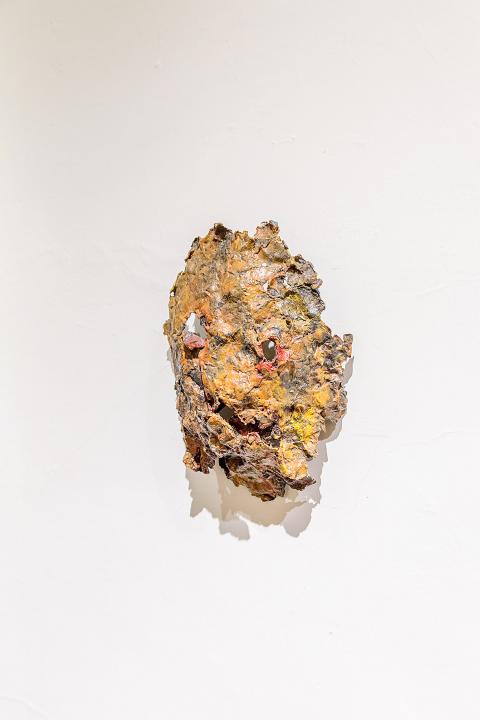
Photo Courtesy of Chang Yi Fang Puppet & Pattern Creations

The low voter turnout for the referendum on Aug. 23 shows that many Taiwanese are apathetic about nuclear energy, but there are long-term energy stakes involved that the public needs to grasp Taiwan faces an energy trilemma: soaring AI-driven demand, pressure to cut carbon and reliance on fragile fuel imports. But the nuclear referendum on Aug. 23 showed how little this registered with voters, many of whom neither see the long game nor grasp the stakes. Volunteer referendum worker Vivian Chen (陳薇安) put it bluntly: “I’ve seen many people asking what they’re voting for when they arrive to vote. They cast their vote without even doing any research.” Imagine Taiwanese voters invited to a poker table. The bet looked simple — yes or no — yet most never showed. More than two-thirds of those

In the run-up to the referendum on re-opening Pingtung County’s Ma-anshan Nuclear Power Plant last month, the media inundated us with explainers. A favorite factoid of the international media, endlessly recycled, was that Taiwan has no energy reserves for a blockade, thus necessitating re-opening the nuclear plants. As presented by the Chinese-language CommonWealth Magazine, it runs: “According to the US Department of Commerce International Trade Administration, 97.73 percent of Taiwan’s energy is imported, and estimates are that Taiwan has only 11 days of reserves available in the event of a blockade.” This factoid is not an outright lie — that

Former Chinese Nationalist Party (KMT) chairwoman Hung Hsiu-chu’s (洪秀柱) attendance at the Chinese Communist Party’s (CPP) “Chinese People’s War of Resistance Against Japanese Aggression and the World Anti-Fascist War” parade in Beijing is infuriating, embarrassing and insulting to nearly everyone in Taiwan, and Taiwan’s friends and allies. She is also ripping off bandages and pouring salt into old wounds. In the process she managed to tie both the KMT and the Democratic Progressive Party (DPP) into uncomfortable knots. The KMT continues to honor their heroic fighters, who defended China against the invading Japanese Empire, which inflicted unimaginable horrors on the

Sitting on a bus bound for Heping Island (和平島), at the start of my first visit to Keelung in years, I was hell-bent on visiting a place of considerable historical interest, even though I knew that it wasn’t officially open to the public. In 2011, archaeologists working in the densely populated southern half of the island unearthed the foundations of the Convento de Todos los Santos (Convent of All Saints, 諸聖教堂), a Catholic house of worship established during Spain’s 1624-1642 occupation of northern Taiwan. I’d heard about its rediscovery a while ago, but it wasn’t until I read a scholarly